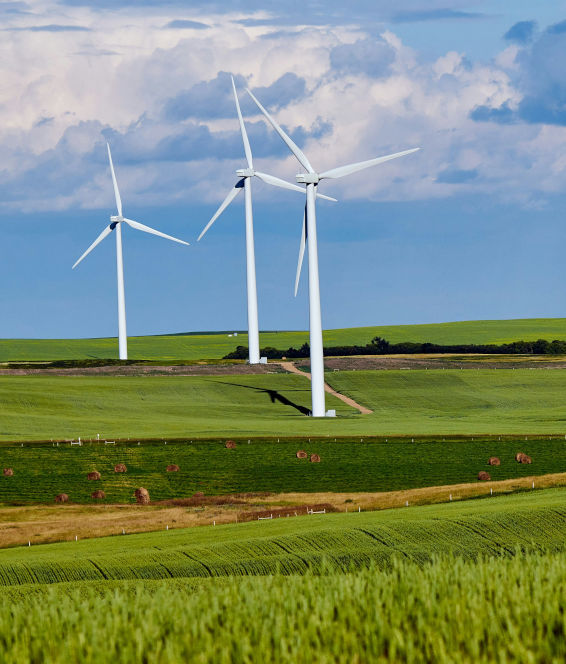Decarbonisation vs. Growth
With Labour’s £28 Billion plan scrapped, we have to ask what a realistic, feasible and economically beneficial plan for reaching Net Zero may actually look like. Net Zero will not come by simply wishing it into existence. Rather, it will take a World War 2-style mobilisation effort. In the process of doing this, we have to accept that we may have to increase short-term emissions to achieve it.
This may sound counter-intuitive. However, we have to be clear about what our emission reductions have really meant. Britain proudly boasts of being the first major economy to halve its emissions between 1990 and 2022, while growing its GDP by 79%. This figure would be impressive if it were the right metric. We have halved our carbon emissions, but we have continued to increase our carbon consumption. This figure is nothing more than some clever carbon accounting from the British government. With the major parties currently fighting to out green each other and promise faster Net Zero results we present the reality that the UK faces when it comes to decarbonisation vs. growth.
Where Emissions Lie
In 1990, manufacturing made up 21% of Britain’s GDP. Today, that figure sits at around 8%. Today, Britain has pivoted to a service economy; services make up 80% of our output. In other words, we haven’t decarbonised, we’ve de-industrialised. Our carbon analysis does not take into account the carbon footprint of our imports. We don’t count the embodied emissions in our phones, TVs, cars, garments, and even our food. Given Britain’s growing trade deficit, that’s a heavy footprint to sweep under the rug. We need to take a mindset shift. Instead of focusing on our territorial emissions and patting ourselves on the back, we should take a global view. Ultimately, the atmosphere cares not where carbon is emitted.

Image of where the world’s emissions are coming from by Adam Symington published in Towards Data Science
Powerhouse for Innovation
We should play to our strengths. While Britain doesn’t create the number of products it once did, we’re still a powerhouse for innovation. Britain still ranks fourth in the Global Innovation Index, and is one of three countries with a technology industry worth more than $1 trillion.
Britain has helped the world innovate its way out of a global crisis before with the creation of the Covid vaccine. Our ambition must be to do the same with climate. To pivot off fossil fuels, we will need to rely on technologies that do not yet exist. We need enormous breakthroughs in creating rare-earth alternatives, fusion technology, nuclear and battery technology, and renewable materials.
Invest to Reduce
That’s where the companies of tomorrow come in. Decarbonisation is often looked at through the big corporate lense – what are they doing to reduce their emissions? Of course, this is necessary for those producing the most emissions to find a rapid solution for minimising those emissions. However, we are going to need more than that. We are going to need the innovative companies who may not even exist yet to develop the required technology to reach Net Zero. We need the growing SMEs who are prepared to take risks and develop what is needed to speed up our global decarbonisation efforts.
However, in order for these companies to thrive and deliver accessibility and scalability with their technologies we need to accept that these companies will emit increased emissions. We cannot expect a company producing solar panels for example to also aim to reach an aggressive reduction target. There will inevitably be an increase in their emissions, which ultimately is a good thing – if it is to help decrease emissions elsewhere in the long run, then we need to invest further in such technology.
Who Will Lead the Way?
This especially true for Britain where we currently lack any national champion in sustainability technology. Politicians rightly present the green transition as an opportunity for economic growth. Yet that sentiment jars with the fact that the producers and manufacturers of transmission lines, blades and solar panels are virtually all foreign companies, providing jobs in their home countries. Of the four companies that accounted for 55% of new orders globally of turbine manufacturing in 2019, not a single one was British. Consequently, the green transition is almost entirely a government and consumer expense rather than a value add industry for the UK. In order to avoid being left behind in the fruits of the renewables race, we have no choice but to create our own domestic supply chain. This will come with an increased domestic carbon footprint.

Avoid the Vanity Fair
This can be supported by getting rid of the idea of territorial accounting. Similar to countries claiming that they have reduce their emissions by X% whilst actually consuming more emissions than ever before, territorial accounting is a vanity fair. When we start measuring organisations on an intensity basis, we can encourage innovation whilst at the same time measuring relative emission reductions. This creates a more realistic and inclusive approach to decarbonisation and allows us to see the bigger picture of our reaching the long term Net Zero goal. By enforcing aggressive reduction measures in the immediate term we are only discouraging these types of organisations in participating in the race.
Chris Hocknell, Director
Chris brings over 18 years’ experience of supporting the built environment and corporate world with their sustainability goals. Specialising in sustainability strategy development, Chris works closely with clients to assess and understand their carbon and environmental footprint.






